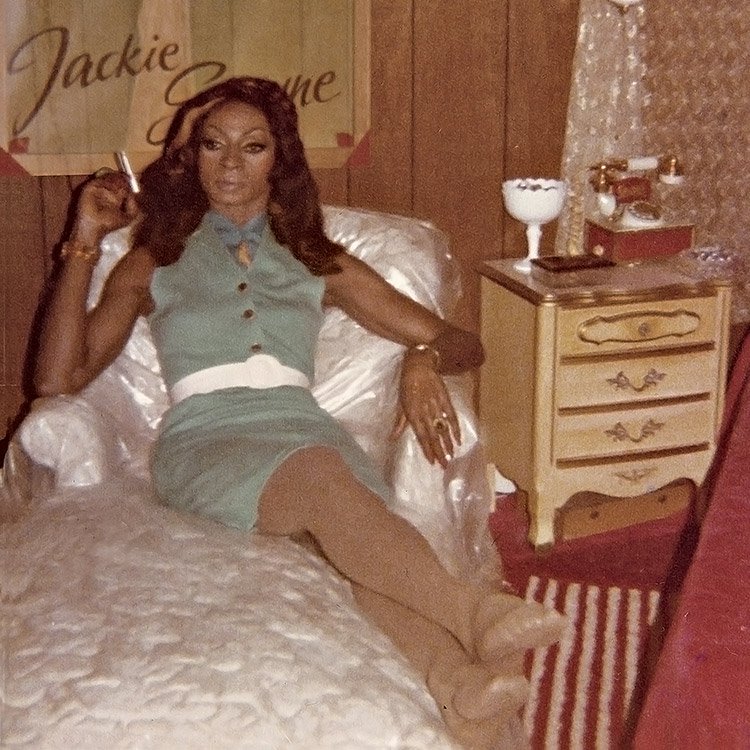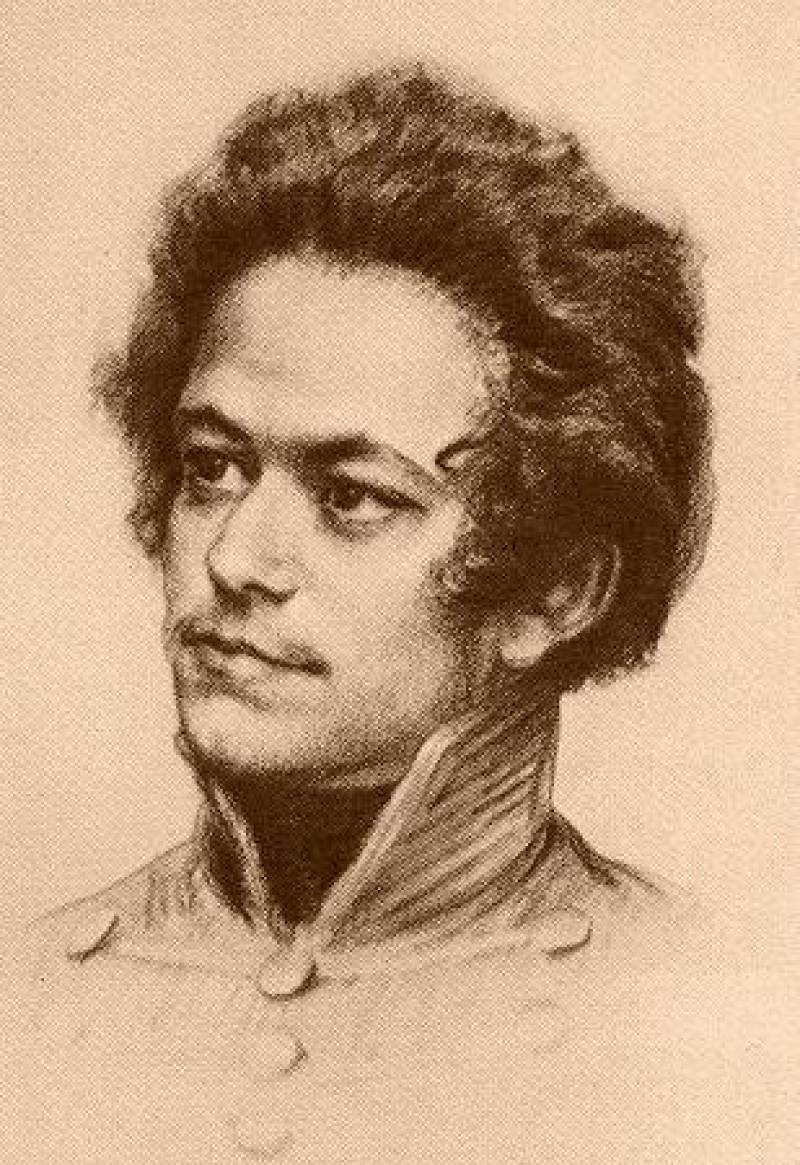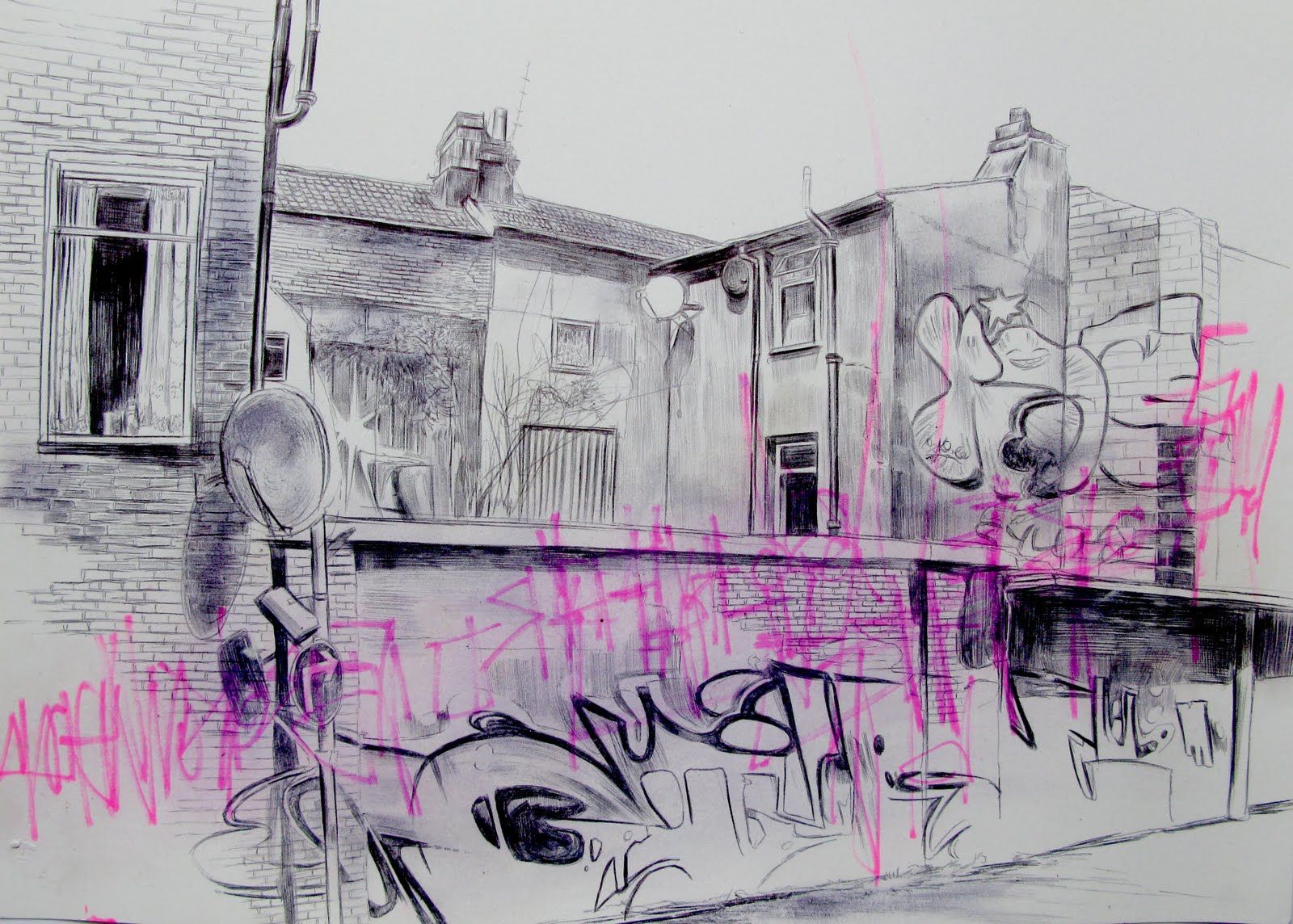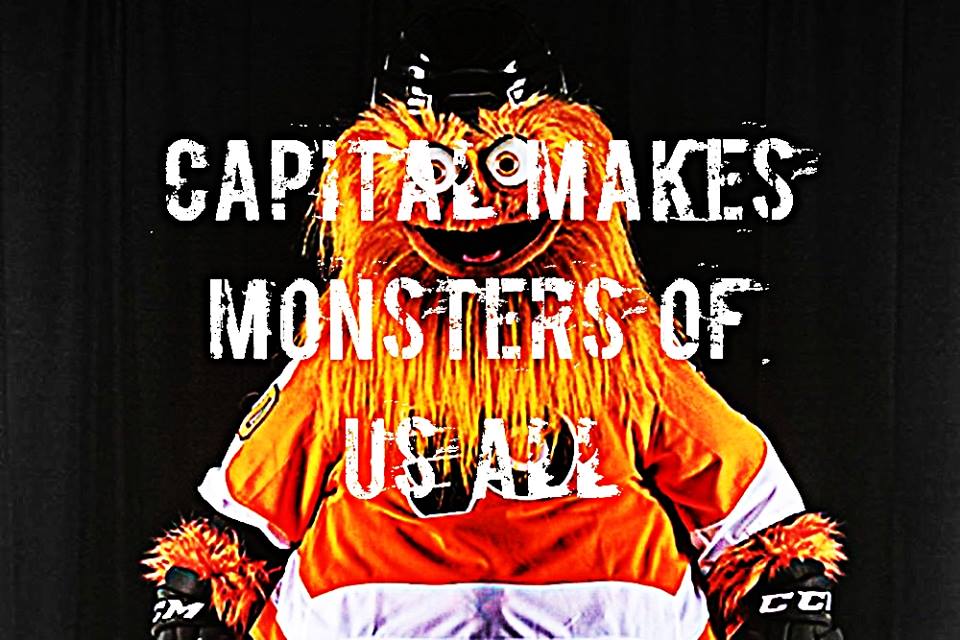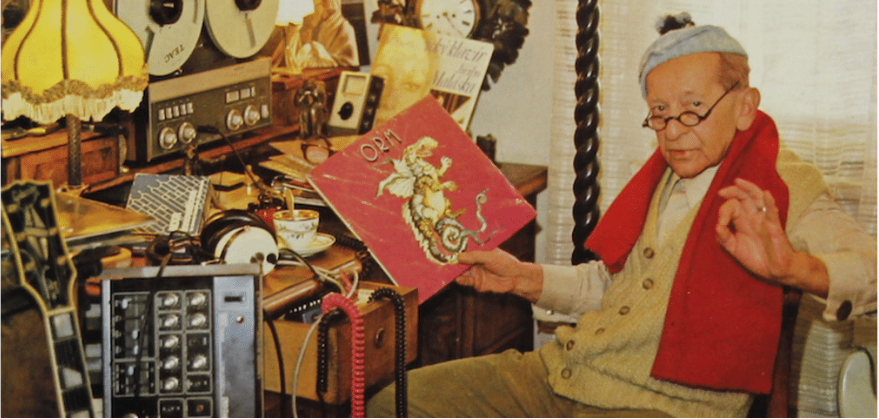According to Franco Moretti, the fear of bourgeois society can be summed up in two names: Frankenstein and Dracula. He notes how both were born in 1816 on a rainy evening near Geneva, at a time when industrial development was just beginning to get underway (1997, 83). His argument is that Frankenstein and Dracula are dramatic, totalizing monsters. Unlike the feudal or aristocratic ghosts who were confined to a castle, these figures go international, expressing the motions of capital and labour. While originally published in 1983, his argument resonates most strongly in the late neoliberal period.
Read moreFear of Ascendant Masses: John Cage + the Case of Glenn Branca
Glenn Branca made it to my hometown relatively late in his career; as I recall, he stormed the stage rasping approval after a performance of the first movement of his fourteenth, then most recent, symphony — an overture of ambient menace, moving through the harmonic series in cascading waves. Wild-haired and foul-mouthed, long since an institution, Branca took his time in praise of the neo-romantic program in which he appeared, spitting anachronistic condemnation of musical systematizers such as Arnold Schoenberg and Pierre Boulez. I recall thinking this attempted relitigation of musical modernism extremely telling; no one is a context unto their own, and more often than not an adaptive grudge outlives its object as a useless negativity, festering resentfully.
Read moreCaught On a Limb: Critique After Christchurch
Marxist cultural criticism, by its nature, walks the tight rope between the Scylla of purely instrumental and didactic analysis and the Charybdis of descriptivism and romanticism. Yet there are times in which Marxist cultural critics must make directly political interventions, emphasizing that indeed we are, in Ash Sarkar’s inimitable phrase, literally communists. This was what gave rise, for example, to Red Wedge statements in support of many of the struggles of the last few years.
Read moreOutsider Art Is A Lie
Ralph Fasanella, New York (1957)
The concept of outsider art, or self-taught art, is a lie. It conceals the actual artistic arguments and content articulated by the artists who are described in this way. While the history of the concept is more complicated, its present usage is bound up with a racial, class and geographic othering, which centers the bourgeois and petit-bourgeois institutional art world (located in New York City first and foremost) as the norm (when it is itself the outlier).
Read moreAn Avant-Garde Defense of Nicolas Cage
Sitting at a piano, decked out in Ray Bans and a black suit, Nicolas Cage sings his heart out about “Pachinko”. A sort of cross between a slot machine and pinball, Pachinko is, like your favorite late seventies rock band, big in Japan, indeed it is part of the fabric of modern Japanese capitalism. Gambling is illegal in Japan, yet Pachinko is tolerated. Instead of winning money at Pachinko parlours, players are awarded golden tickets which are thus exchangeable for cash at other locations affiliated with the parlours themselves. The industry, targeting poor and working-class people not unlike video terminal gambling in North America, is primarily staffed by ex-police.
Read more"Bring Back Rock Against Racism" ... But How?
There Ain’t No Black In the Union Jack by Ruth Gregory.
In August 2018, Labour’s John McDonnell called on Twitter and then in a press release for the relaunch of the Anti-Nazi League. Citing the success of Tommy Robinson and Boris Johnson’s Islamophobic likening of Muslim women to letterboxes, the shadow chancellor said, "Maybe it’s time for an Anti-Nazi League type cultural and political campaign... The ANL pioneered highly influential cultural movements like the Rock Against Racism, which attracted tens of thousands of people of all ages to anti-racist festivals and protests.” The response was predictably partisan: the New Socialist was in favour, Dan Hodges against. Stephen Pollard, editor of the Jewish Chronicle, complained that McDonell was plotting against parliament. ‘McDonnell believes – and says so – that true democracy is on the streets. This seemingly well-meaning tweet needs to be seen in that context. In government, ‘the street’ would be a key weapon in the hard left armoury.’
Read moreA Different (Hot) Take on Kon-Mari and the Working Classes
Ode to Joy?
The internet has caught the Kon-Mari virus. While the book was already a huge best-seller, nothing is really big these days until it hits Netflix, and the TV series of the Mari Kondo getting people to carefully curate their possessions has got everyone talking, and her name has become a verb: kon-mari. Is it reactionary garbage? While Kondo’s brand of de-hoarding is super specific and not even necessarily minimalist, its certainly caught up in the same trends of #minimalism, tiny houses, and getting rid of all your material possessions so you can put them in a backpack, travel the world and work on your laptop trends. Is this stuff actually a bunch of reactionary nonsense? Is it the aesthetic of the condominium industry? Can poor and working class people afford to get rid of their stuff?
Read moreFuck Your Decorum
The US Capitol rotunda. An upward funnel of wealth.
We don’t need to listen all that closely to hear the voice of right-wing reaction lately. But over the past few days its questions have been particularly and flagrantly silly. “How dare these brown women swear? How dare they dance? How dare they dress in ways that go against our expectations? And how dare they think they can now walk the halls of Congress? Who do these socialists think they are?”
For sure, all aesthetic standpoints are political, and especially in the United States. This is after all a country where the far-right gained a level of influence it hadn’t seen in sixty years through the election of a reality TV star.
Read moreThe Poverty of Descriptivism
Karl Marx writes in Estranged Labour* that, accepting the presuppositions underlying political economy as it existed at the time of writing, one can see that there is a hell of a lot missing. There is something to it – but it is insufficient. As Marx writes, political economy “expresses in general, abstract formulas the material process through which private property actually passes, and these formulas it then takes for laws. It does not comprehend these laws – i.e., it does not demonstrate how they arise from the very nature of private property.”
One can say the same thing about the dominant form of writing about popular music. It can provide you with consumer knowledge with perhaps a tad more (but only a tad) than an algorithm.
Read moreNo More Art Districts
Montmartre during the Paris Commune (1871)
The pooling of artists in global cities has become a destructive anachronism; destructive to artists, working-class communities in those cities, and destructive to art itself.
The formation of art enclaves in industrial capitalism, during a century of accelerating aesthetic and conceptual innovation (1850-1950) had a progressive logic. Artists’ innovations fed off their physical proximity to each other. Moreover, these aesthetic and conceptual interventions were often in political sympathy to the industrial working-class concentrated in cities like London, New York, Paris and Berlin. Artists found a radical, and oftentimes working-class, cosmopolitanism in these artistic enclaves. Gentrification had not yet evolved to exploit artists as it does today.
Read moreShake the City: Experimental Theses on Space and Time, Music and Crisis
Brighton Walls by Laura Oldfield Ford.
Plato insisted that slaves, allowed full access to musical and artistic expression, might bring down Athens. Though it was clearly a turn of frenzied hyperbole on his part, he also appears to have seen a genuine danger, not just in the underclass’ possession of music, but in its ability to change it.
“Musical innovation is full of danger for the state,” he wrote, “for when the modes of music change, the laws of the state always change with them.” Or, in its catchier, vulgarized version, “when the mode of the music changes, the walls of the city shake.”
Read moreMake Queen Queer Again
An apocryphal moment has Sid Vicious walking by Freddie Mercury in a recording studio, circa 1978. The Sex Pistols were likely recording their vastly overrated Nevermind the Bollocks LP while Queen were likely recording their pop-metal classic Jazz. Ever the charmer, Vicious is said to have approached Mercury and baited that he was the person bringing ballet to the masses. Mercury, dynamite with a laser beam, riposted to Vicious, who he saw as a poseur, “We’re doing our best, Simon Ferocious!” Malcolm McLaren’s boy band may well have been the talk of the town but for the proletariat, it was with Queen. Declasse youth could be punks, but as Neil Davidson pointed out at one of Red Wedge’s panels at Historical Materialism London, to a large extent, it was a trend…
Read moreA Walk Through No-Woman’s Land: Reading Isabella Whitney (1545 – 1577), Britain’s First Professional Woman Writer
London, 1570.
As night falls on London, the urban landscape becomes a no-woman’s land. To go out alone after dark is to take a journey through my own nervous system, assessing at every street corner the hospitability of the streets ahead of me. I do it all the time – I have to – but every journey from bar to bar, from workplace to the train or from home to the shops comes with a mild sense of risk, which increases tenfold whenever I pass a particularly sinister lone lurker or a group of men congregating together.
Read moreRomanticism, Idealism, and the Nightmares of Capitalist Modernity
Mary Shelley, the Industrial Revolution, Karl Marx
Imagine it is 2016. Clinton is still ahead in the polls, she has every hope of gaining the White House. One night she dreams she has won, and, just as she steps into the Oval Office she glances in a mirror to find, glaring back at her, none other than Trump.
Trump’s presence in the White House is the eruption of what I shall go on to explore as the uncanny; a rupture of form; an intrusion of something monstrous into the heart of the body politic.
Read moreTrue Grit: From Weird Mascot to Eldritch Revolutionary
“Polysemy (from Greek: πολυ-, poly-, "many" and σῆμα, sêma, "sign"), the capacity for a sign, such as a word, phrase, or symbol, to have multiple meanings, usually related by contiguity of meaning within a semantic field.” – definition adapted from Wikipedia
“If you cannot convince a fascist, acquaint his head with the pavement.” – Gritty (probably)
Now is the time of monsters, the well-worn phrase tells us. But monsters, if they are interesting, are unpredictable. They come out of nowhere and evince their nowhere-ness, their improbability creating fascination, fear, revulsion, sympathy.
Read moreBetween Thought and Expression: Utopia and Improvisation
The Grateful Dead.
The dream of utopia is difficult to find. Not always a “good dream”, it can just as well be a nightmare. More properly, the dream of utopia is a dream we cannot categorize according to the binary of nightmare and “sunshine daydream”. Yet, like a mole burrowing away, utopia can be found in the strangest of places, which once apparent become obvious. Like the hidden erotica on a Camel cigarette pack, utopian impulses cannot be unseen – or unheard, its mark indelible like ink that will never wash away.
Read moreRealism, Modernism, and the Spectre of Trotsky: Part 2, Greenberg
Jackson Pollock’s She-Wolf (1943).
In the first part of this article I discussed Lukács and his theory of Realism. I now want to turn to Clement Greenberg, “the major theoretical figure of the late modern age and indeed that theoretician who more than any other can be credited as having invented the ideology of modernism full-blown and out of whole cloth.” At his best, Greenberg deserved his reputation as a critic quite as much as Lukács for his clarity of description, refusal of jargon and, above all, focus on the materiality of the work of art. The most productive phase in his career spanned the 20 years between his first major article, “Avant-Garde and Kitsch” (1939) and the codification of his mature views in “Modernist Painting” (1960).
Read moreElectric Kool-Aid Asshole: Tom Wolfe Dies
Tom Wolfe playing dress-up.
Tom Wolfe is dead. He lived long enough to be a celebrated icon, emulated across the political spectrum. Wolfe affected the old-fashioned American pose of a chronicler, an H.L. Mencken or Horace Greeley, yet Mencken was a sincere Nietzchean misanthropist while Greeley, a friend of Marx, was a sincere liberal. Wolfe, on the other hand, was a reactionary poseur who dressed up in slave-owner’s garb nearly every day. While readable in the way one chortles at an Alex Jones video, Wolfe contributed more to the American intelligentsia’s self-mystification than just about any other writer of the last hundred years.
Read moreOn Boris Groys: “Every Revolution Begins with a Lie”
Worker and Kolkhoz Woman (left) and Duchamp's Fountain (right).
Paris based cultural theorist Boris Groys exerts a strange pull on the minds of many who seem predisposed to accept what he has written about everything except the Soviet experience. When it comes to his writings about the relationship between art, curation and the internet, he is listened to and his ideas are formative of our contemporary discourse on modern art.
When it comes to his varied works on philosophers, we engage with his iconoclasm. There is something attractive about a way of looking at philosophy that draws its model from Duchamp’s (or R. Mutt’s) expo of an upside-down urinal.
Read moreDance, Dance, Revolution: Exploring Soviet Disco
A specter is haunting the American liberal public: the spectre of Vladimir Putin busting a move.
Accused by a range of liberal public figures of masterminding a plot to elect Donald Trump to the presidency, Putin looks and acts the part, like a “bad guy” in an eighties Hollywood film – all the while cultivating friendships with “good guy,” Steven Segal. Perhaps reflective of his days as an intelligence officer based in East Germany between the rise of Gorbachev and the fall of the Berlin Wall, Putin is enamored with the action aesthetic of the Reagan years.
Read more





